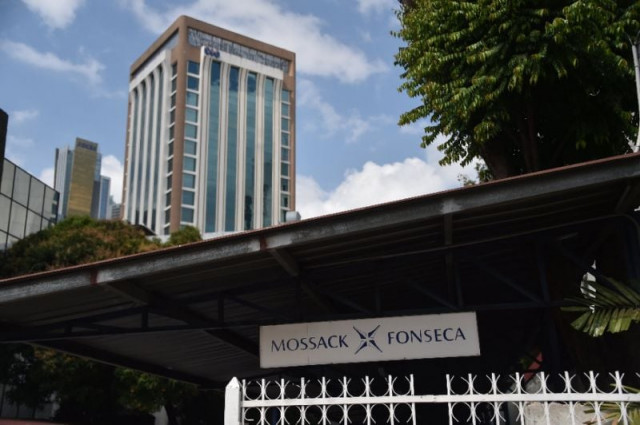Panama Papers: Finding beneficiaries of offshore companies won’t be easy
Professionally trained corporate crime and fraud examiners need to be part of judicial commission

PHOTO: AFP
The documents, which were first made available in 2015 by an anonymous source, were analysed and investigated by the International Consortium of Investigative Journalist (ICIJ). In the past week, this enormous leak has revealed several wealthy individuals, including public office holders and celebrities, to be the ultimate beneficial owners of the offshore companies.
It has been intimated that the dealings of these individuals with Mossack Fonseca is in a bid to carry out illegal activities such as evasion of tax, fraud, bribery and corruption.
Financial institutions are typically required to carry out an ‘Enhanced Due Diligence’ (EDD) procedure, to find out the Ultimate Beneficial Owner of offshore companies seeking to do business with them.
The EDD is carried out to reduce high risk situations, such as money-laundering and financing terrorism, that may be associated with dealing with an individual or company. It involves the gathering of additional information to verify the identity of customers, as well as, their source of income.
An EDD is also especially required where the customer is not available in person, or the customer is a politically-exposed person.
However, the EDD process may become a tedious task with a corporate service provider such as Mossack Fonseca, operating out of Panama.
Panama provides a constitutionally guaranteed privacy for both citizens and foreigners under its jurisdiction, thus, allowing Mossack Fonseca to be protected by Panama privacy laws which provides complete anonymous ownership of business interest and ventures.
Article 29 of its constitution specifically prohibits the violation of private document and correspondence and states that these document may not be held or examined by a third party except for legal or judicial purposes.
Also, Law 6 (2002) of the ‘Panama privacy codes’ establishes that personal information can only be shown to an interested party and makes it a crime if the confidentiality is violated. These laws allow Mossack Fonseca to choose not to make public the Ultimate Beneficial Owners of the offshore companies it controls, and thus making the EDD process difficult.
Furthermore, Mossack Fonseca operates in such a way that they stand in or provide stand-ins to serve as the owner of a company. They register the company, open bank accounts and even provide directors to sit on the board of the company.
They also provide several layers of ownership in a bid to hide the Ultimate Beneficial Owner so that an individual listed or found to be the legal owner of the offshore company may simply be holding the position for another individual who prefers anonymity. Thus, it is important that the designated judicial commission and/or investigation agency engaged to unearth the hidden assets and proceeds of any financial crime/tax evasion by alleged politicians in Pakistan must be equipped with professionally trained corporate crime and fraud examiners.
A thorough Enhanced Due Diligence along with Forensic Accounting Analysis, Conflict of Interest Investigation procedure must be carried out even after the identity of a stated Ultimate Beneficial Owner (UBO) has been known or found out.
It is not out of place to mentioned here that Pakistani politicians, specifically those indicated in this scandal along with the other expanded list, should be asked to provide written consent/authorisation to investigate/process and verify all their corporate records, financial statements and relevant public record and non-public record information across the Jurisdictions.
This should be done during the course of finding out whether the stated individual has a financial profile which corresponds with the activities of the offshore account or if he is related to or is an associate of a wealthy or famous individual, or a politically exposed person.
The writer is the Group Chief Executive Officer of Corporate Research and Investigations LLC
Published in The Express Tribune, May 2nd, 2016.
Like Business on Facebook, follow @TribuneBiz on Twitter to stay informed and join in the conversation.



















COMMENTS
Comments are moderated and generally will be posted if they are on-topic and not abusive.
For more information, please see our Comments FAQ